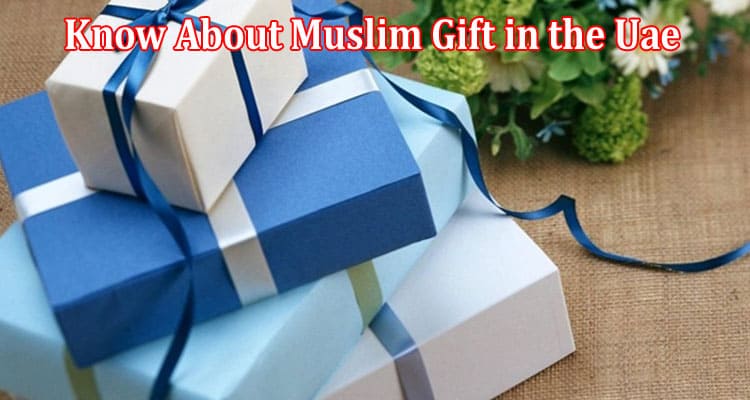What You All Need to Know About Muslim Gift in the Uae?
Muslims can distribute their property in a variety of ways under Islamic law. It might be by a gift, recognized in Sharia law as Heba, or through a will. In Sharia law, the phrase “gift” is known as “Heba.” In English, the word “gift” has a considerably broader meaning that encompasses any transaction in which one individual distributes his or her property to another without receiving anything in return. A Muslim can give away all of his property during his lifetime, but only one-third of it can be given away through a will. Furthermore, the religion of the receiver of the gift is irrelevant. This article will discuss the essential elements of a valid gift and the other relevant requirements for making a gift.
What Is a Gift (Heba) Under Muslim Law?
Article 614 of the Federal Law no.5 on the Civil Transactions Law of the United Arab Emirates State (Civil law) defines the term ‘gift’. It states that a gift is the transfer of property or a financial right to another person for no monetary compensation during the Donor’s lifetime.
Heba, or gift, is a transfer of property made by one person to another without any payment. Such transfer of property must be acknowledged by or on behalf of the latter (Donee). In other words, Heba is a transfer of ownership of an existing property unconditionally and must take place instantly and without payment.
Parties to Heba
There are two parties involved in the gift of property:
Donor: A Donor is someone who expresses their desire to give their possessions to another individual.
Donee: The Donee, on the other hand, is the individual who gives his consent to the acceptance of the Donor’s gift.
Essential Elements for Making Hiba
According to Article 615 of the Civil Law, there are primarily three requirements that must meet for a Muslim to transfer property or make a gift successfully. The following are the conditions:
- The Donor makes an offer:
His or her offer of gift indicates the Donor’s willingness to make a gift. The offer made by the Donor should be unambiguous and straightforward. It can be made orally or in writing by the Donor. It is necessary to state the offer in clear words. A gift that is made unambiguously is invalid.
Requisites of Donor
The Donor’s requirements are as follows:
- The Donor must be a Muslim. Any other individual cannot do Hiba in the place of a Muslim.
- The individual must be of legal age, i.e., he or she must be an adult, i.e. the Donor must have completed 21 years of age.
- The Donor’s permission must be obtained freely and without any force. If a person’s permission is acquired by force, it is not free consent, and the gift is void.
- The Donor must be of sound mind. Any gift given by someone who is mentally ill is invalid.
- The Donor should be the owner of the property that he is giving away as a gift.
- The Donee’s acceptance of the gift:
The Donee must accept the gift to be considered valid. If the Donor is the Donee’s natural or legal guardian and the property provided is in his possession, the offer alone is sufficient in a gift. If the Donee is a minor who is under the Donor’s custody, the same rules apply. The Donee may accept the gift even after the death of the Donor.
The requisites of Donee
- The Donee may be Muslim or non-muslim.
- A donee’s age is not a criterion. He or she might be of any age, major or minor.
- An unborn baby can be given a gift, but it must be in her mother’s womb.
- The Donor’s transfer of ownership in the property
Following the completion of the Donor’s intended transfer and the Donee’s acceptance of it, the following essential requirement for a valid gift is the Donor’s transfer of possession and the Donee’s acceptance of it. For a Muslim gift to be lawful and final, the property donated must be transferred to the Donee. If the Donee has not received possession of the property, it will be invalid or incomplete.
Gift Made During Death Bed (Articulo Mortis)
According to Article 244 of the Personal Status Law, any act of disposition taken in articular mortis (at the point or moment of death) as a gift or by favoritism should be controlled by the laws applicable to wills.
Muslims’ gifts made during ‘death illness (Articulo Mortis) are considered as Wills. When a Muslim makes a gift of his property on his deathbed, the transfer is treated as a will rather than a Hiba. Even though the transaction is described as a gift, it is regarded as a Will. The Muslim law of wills governs the execution of such a legacy. As a result, if the Donee is a stranger or non-heir, he cannot receive more than one-third of the total assets without the legitimate heirs’ permission.
This post is primarily intended to give general information about making a gift to your loved ones. The information contained herein does not constitute any legal advice. A gift deed is an important concept that must be carefully written. All required conditions for generating a Gift deed must be met to perform a lawful deed. HHS Lawyers and Legal consultants can help you with a gift transfer, whether it’s to your children, spouse, parents, or firm. Experts can take care of the entire procedure for you. If you have any questions concerning the Trust’s formation, please don’t hesitate to contact experts.




